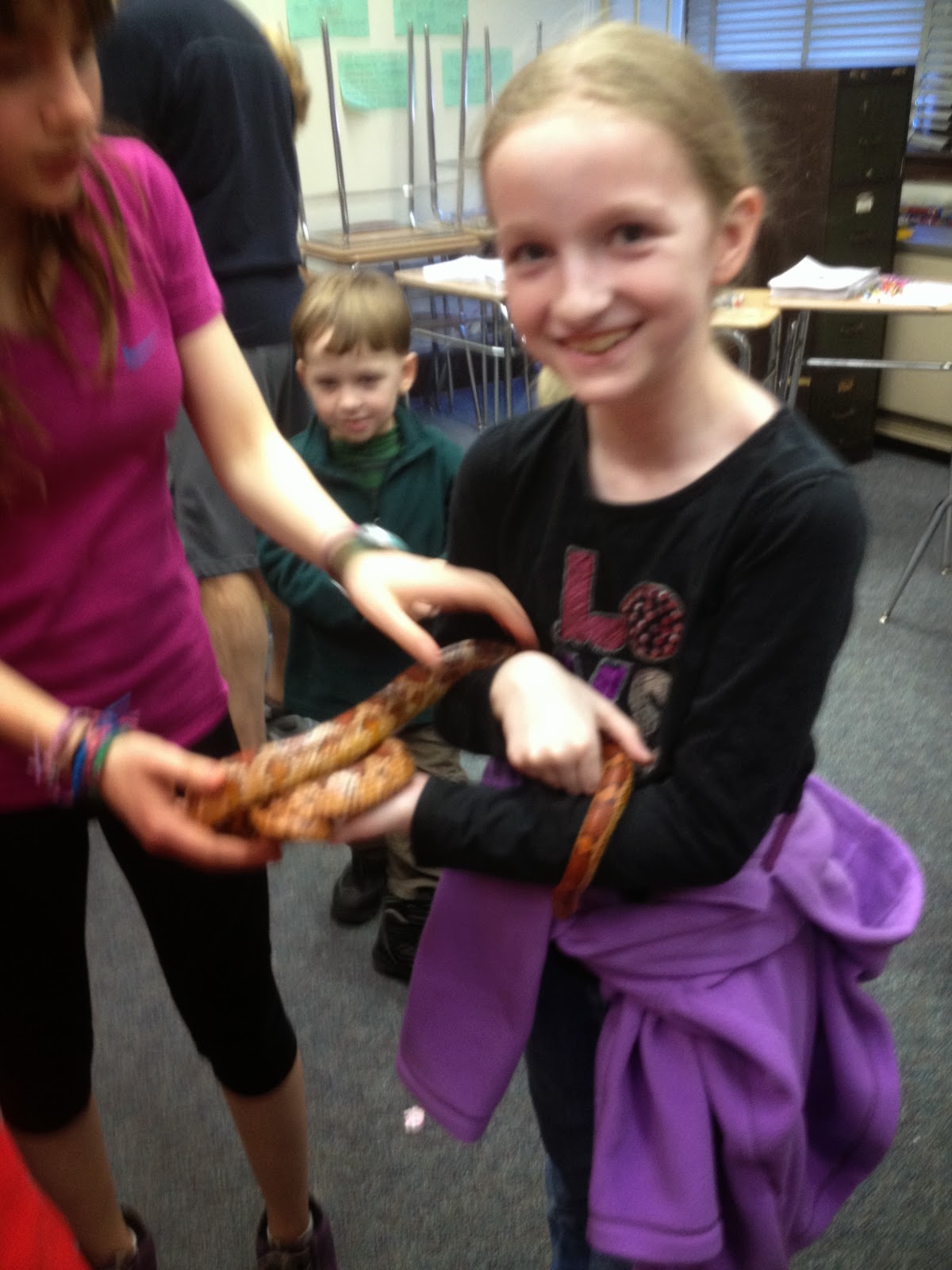There were drones. They didn't fly them, though.
There was a flight simulator.
And there were tons of experiments by local kids.
Looking at bacteria.
Creating static electricity.
One of my favorite experiments; creating colored flowers.
Some kids were stationed by there experiments so they could explain them.
Making paper airplanes.
Flying paper airplanes.
I have still never held a snake.
My kids are braver than I am (except for Hugmonkey).
But you don't have to go to a science event or museum to teach your kids about science. And you also don't have to buy expensive sets or do a ton of work for them to learn about science. I promise.
- For babies and toddlers: Okay, life is pretty much a science experiment for babies and toddlers - dropping the cup on the floor 8 million times is just a way to test gravity, after all. Provide soft blocks, cups for the bath and experience with textures like sand and grass and you've covered baby science.
- Preschoolers: Building with blocks and riding bikes are an excellent intro to physics. For biology, you can have them grow some bean plants or even just have them help in the family garden. Chemistry can be covered by cooking together, or letting them mix paints and/or play dough colors.
- Early elementary grades: There are so many great options for this age group. Have them test the distances their paper airplanes can fly and figure out which styles or materials fly best. Grab some white carnations and put them in cups of water, then add food coloring to the water and watch what happens to the flowers. Let them figure out the fastest way to make an ice cube melt. Encourage them to cook with you more, to try out different types of seeds or watering schedules in the garden, to make their own play dough and to make predictions about the world around them.
- Intermediate grades: If they're big Lego fans, try Lego Robotics. They can also try building ramps for the skateboards or bikes. I've seen kids become obsessed with figuring out which brand of microwave popcorn pops the most, or which stain fighter is most effective.
If you need more ideas, there are great books with lots of science ideas:
- Janice VanCleave's Help! My Science Project Is Due Tomorrow! Easy Experiments You Can Do Overnight
- Science in Seconds for Kids: Over 100 Experiments You Can Do in Ten Minutes or Less
- Amazing Leonardo da Vinci Inventions: You Can Build Yourself (Build It Yourself)












